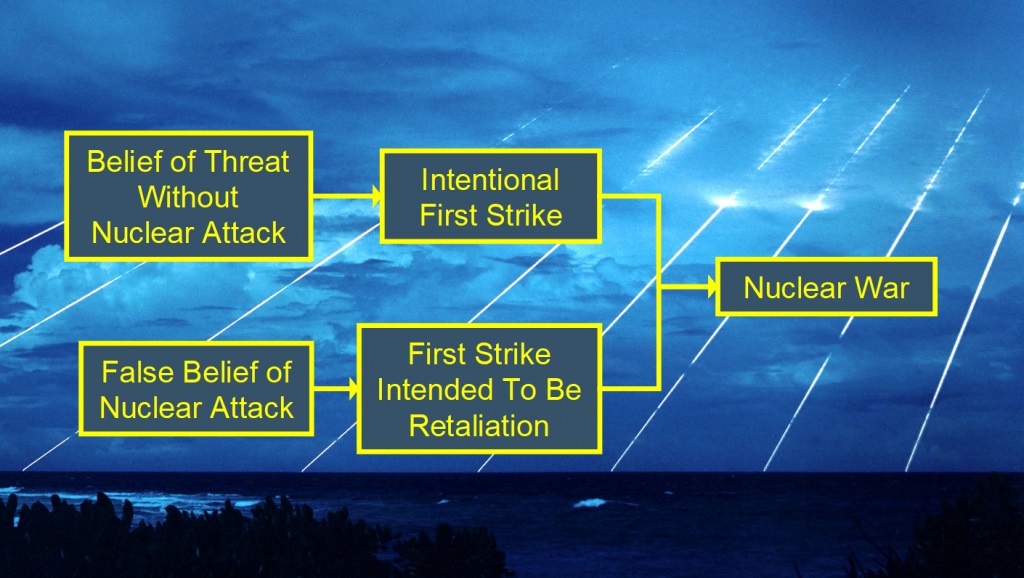The probability of nuclear war is a major factor in many important policy questions, but it has gotten little scholarly attention. This paper presents a model for calculating the total probability of nuclear war. The model is based on 14 interrelated scenarios for how nuclear war can break out, covering perhaps the entire range of nuclear war scenarios. Scenarios vary based on factors including whether a state intends to make a first strike attack, whether the nuclear attack is preceded by a conventional war or a non-war crisis, whether escalation is intentional or inadvertent, the presence of false alarms of various types, and the presence of non-war nuclear detonations such as nuclear terrorism. As a first step towards quantifying the probability of nuclear war using the model, the paper also includes a dataset of historical incidents that might have threatened to turn into nuclear war. 60 historical incidents are included, making it perhaps the largest such dataset currently available. The paper also includes background information about probabilistic analysis and modeling to help readers understand how to think about the probability of nuclear war, including new theory for the decision to initiate nuclear war.
Academic citation:
Seth D. Baum, Robert de Neufville, and Anthony M. Barrett, 2018. A model for the probability of nuclear war. Global Catastrophic Risk Institute Working Paper 18-1.
Image credit: United States Army
This blog post was published on 28 July 2020 as part of a website overhaul and backdated to reflect the time of the publication of the work referenced here.










